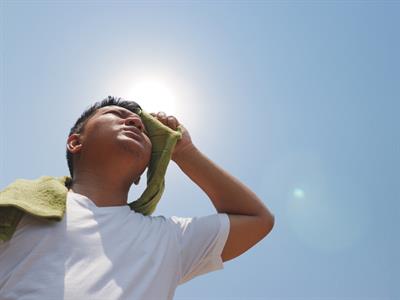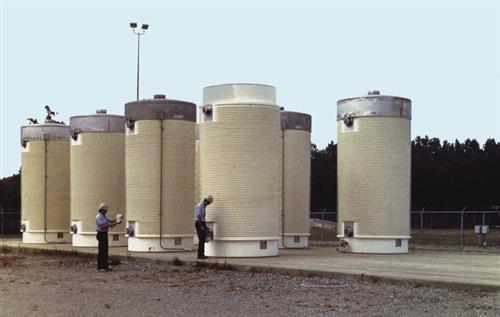PDF chapter test TRY NOW
We all receive some kind of natural radiations from the Sun in our daily life.

Sun's radiation
The radioactive elements are also found in soil, rocks and household gadgets such as televisions, microwave ovens, cell phones and \(X-\ rays\). These kinds of radiation have no harmful consequences due to their low intensity. Whereas other kinds of nuclear radiation like artificial or man-made radiation affect all living and non-living things on Earth. These radiations occur as a result of nuclear reactors and nuclear device testing in the atmosphere or on the ground.
When radioactive materials are handled improperly or carelessly, dangerous radiation is released into the environment. These rays are extremely dangerous to the human body. A person exposed to radiation repeatedly for a long time is at a higher risk of developing cancer and may be genetically altered.
In genetic effects, the radiations change the genes of the exposed person and pass them on to the next generation. The offspring of the affected persons may also have some deformities.
Nuclear waste disposal:
The nuclear fuels and rods used in the reactors should be handled with care so that humans are not exposed to their radiation.

Dry storage of used fuel
Used nuclear fuels are first stored underwater in a nuclear plant and then sent to a processing plant to retrieve some usable materials. Fuel is also stored in safe places like unused deep mines.
Utmost care should be taken to ensure that there is no leakage in moderators and coolants used in a nuclear plant. If there is any leakage, it can cause contamination of water bodies and soil.
Reference:
https://upload.wikimedia.org/wikipedia/commons/9/91/Dry_Storage_of_Spent_Nuclear_Fuel_%287845746956%29.jpg
